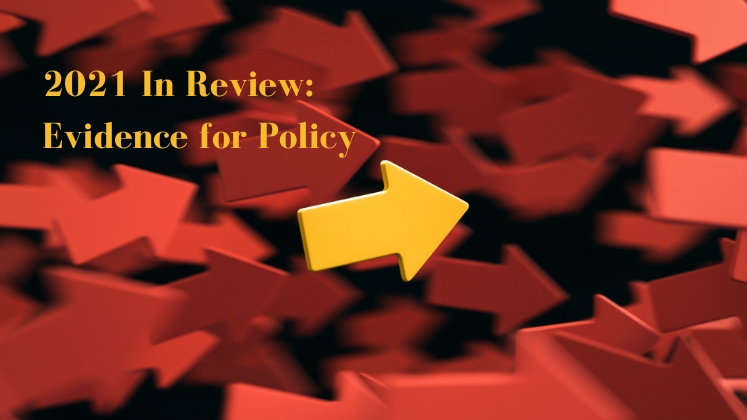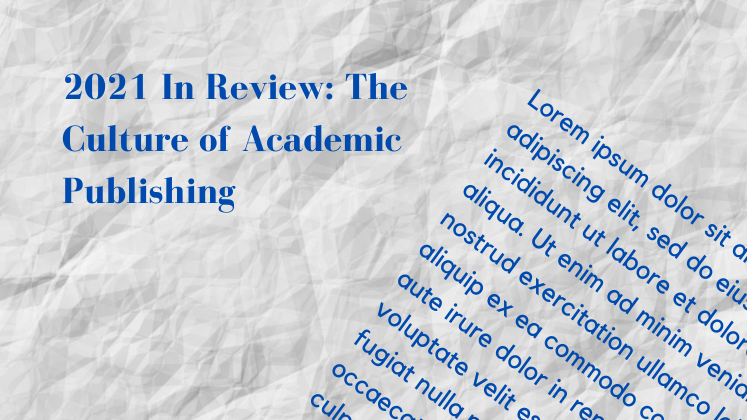Throughout 2021 universities and higher education institutions have faced the immediate challenge of COVID-19, whilst at the same time long term trends continue to disrupt and reconfigure the sector. This annual review brings together a selection of posts addressing work and life in academia that have been featured on the LSE Impact Blog this year.
Who gets to be a classic in the social sciences?:
 Of all the ideas produced by researchers in the social sciences, only a relatively small number of key ideas and researchers will become canonised as classics, objects of continued interest and key learning points for new researchers. However, the processes by which these scholars and ideas are recognised and filtered out from those of their contemporaries are little understood. Drawing on a quantitative study of sociologists in the 20th century, Nicole Holzhauser, argues that not only the content of scientific work, but also social capital has historically played a significant role in allocating recognition and power within the field, although, social capital alone is insufficient to achieve lasting success. Taking this historical example into account, contemporary researchers might carefully consider the factors that shape how they allocate recognition through citation.
Of all the ideas produced by researchers in the social sciences, only a relatively small number of key ideas and researchers will become canonised as classics, objects of continued interest and key learning points for new researchers. However, the processes by which these scholars and ideas are recognised and filtered out from those of their contemporaries are little understood. Drawing on a quantitative study of sociologists in the 20th century, Nicole Holzhauser, argues that not only the content of scientific work, but also social capital has historically played a significant role in allocating recognition and power within the field, although, social capital alone is insufficient to achieve lasting success. Taking this historical example into account, contemporary researchers might carefully consider the factors that shape how they allocate recognition through citation.
Four reasons slow scholarship will not change academia:
 For several years the slow scholarship movement has gathered an international following in advocating for a more conscientious slower form of academic work. Arguing against this blanket rejection of acceleration in academia, Filip Vostal puts forward that the concept of slow scholarship is to an extent misguided and has thus far proven to be an inadequate vehicle to push for change in an increasingly marketised and quantified academy.
For several years the slow scholarship movement has gathered an international following in advocating for a more conscientious slower form of academic work. Arguing against this blanket rejection of acceleration in academia, Filip Vostal puts forward that the concept of slow scholarship is to an extent misguided and has thus far proven to be an inadequate vehicle to push for change in an increasingly marketised and quantified academy.
F**k Ups in Social Research: Learning from what goes ‘wrong’:


 What happens when research goes wrong, or at least, is perceived to go wrong? How do researchers manage, or indeed fail to manage, the unexpected, and what new intellectual developments might be made possible through engagement with ‘failures’? Jason Hughes, Anna Tarrant, Kahryn Hughes and Grace Sykes discuss these questions, as part of a forthcoming edited collection, called F**k Ups in Social Research: What to do when Research Goes Wrong. Here they explore the value of failure in research and the importance of crafting a critical and reflexive space for learning when social research doesn’t go to plan.
What happens when research goes wrong, or at least, is perceived to go wrong? How do researchers manage, or indeed fail to manage, the unexpected, and what new intellectual developments might be made possible through engagement with ‘failures’? Jason Hughes, Anna Tarrant, Kahryn Hughes and Grace Sykes discuss these questions, as part of a forthcoming edited collection, called F**k Ups in Social Research: What to do when Research Goes Wrong. Here they explore the value of failure in research and the importance of crafting a critical and reflexive space for learning when social research doesn’t go to plan.
Is hybrid a desirable ‘new normal’ for academic events?:
 The COVID-19 pandemic has led to an intense period of innovation in how academic events are mediated and communicated to online audiences. As in-person academic events begin again, Mark Carrigan, considers whether we are returning to an implicit new normal in which hybrid in-person events are the default mode of communication. Whilst this format may prove useful, he argues that the environmental and accessibility benefits of online and a-synchronous forms of communication should not be jettisoned in the urge to resume business as usual.
The COVID-19 pandemic has led to an intense period of innovation in how academic events are mediated and communicated to online audiences. As in-person academic events begin again, Mark Carrigan, considers whether we are returning to an implicit new normal in which hybrid in-person events are the default mode of communication. Whilst this format may prove useful, he argues that the environmental and accessibility benefits of online and a-synchronous forms of communication should not be jettisoned in the urge to resume business as usual.
 The Higher Education and Freedom of Speech Bill is currently moving through the committee stage in Parliament. In this post, Conor Gearty reflects on previous attempts to regulate free speech in universities and highlights potential unintended consequences of the legislation, particularly in relation to the government’s own prevent and anti-Semitism agendas.
The Higher Education and Freedom of Speech Bill is currently moving through the committee stage in Parliament. In this post, Conor Gearty reflects on previous attempts to regulate free speech in universities and highlights potential unintended consequences of the legislation, particularly in relation to the government’s own prevent and anti-Semitism agendas.
 Prior to the COVID-19 pandemic a significant and influential body of academic research had begun to take shape around the experience of ableism within the academy. In this post, Nicole Brown reflects on how the pandemic has made this work more relevant than ever and the opportunity it presents for individuals and institutions to learn and face the complexities of genuine inclusion in higher education.
Prior to the COVID-19 pandemic a significant and influential body of academic research had begun to take shape around the experience of ableism within the academy. In this post, Nicole Brown reflects on how the pandemic has made this work more relevant than ever and the opportunity it presents for individuals and institutions to learn and face the complexities of genuine inclusion in higher education.
Beyond publish or perish – Exploring the multi-faceted benefits of academic writing:


 The phrase ‘publish or perish’ suggests that the purpose of academic writing is in and of itself to be published. Drawing on qualitative research into academic writing practices, Marion Heron, Karen Gravett and Nadya Yakovchuk suggest that the ‘publish or perish’ concept obscures much of the value in academic writing that resides in writing as a process, and the opportunities it presents academics to individually and collaboratively develop and innovate.
The phrase ‘publish or perish’ suggests that the purpose of academic writing is in and of itself to be published. Drawing on qualitative research into academic writing practices, Marion Heron, Karen Gravett and Nadya Yakovchuk suggest that the ‘publish or perish’ concept obscures much of the value in academic writing that resides in writing as a process, and the opportunities it presents academics to individually and collaboratively develop and innovate.
Defending a PhD thesis is an emotional moment candidates and supervisors should be prepared for:
 The PhD defence, or viva, is significant academic rite of passage, which as well as marking the culmination of years of study, can also be a highly charged emotional moment. Drawing on years of collecting accounts of PhD defences on her blog and her recent book (Planning and Passing Your PhD Defence, co-authored with Olga Degtyareva), Eva Lantsoght, discusses how both PhD students and supervisors can benefit from a more engaged understanding of the emotions underlying the PhD defence.
The PhD defence, or viva, is significant academic rite of passage, which as well as marking the culmination of years of study, can also be a highly charged emotional moment. Drawing on years of collecting accounts of PhD defences on her blog and her recent book (Planning and Passing Your PhD Defence, co-authored with Olga Degtyareva), Eva Lantsoght, discusses how both PhD students and supervisors can benefit from a more engaged understanding of the emotions underlying the PhD defence.
Putting social science in its place – Could social science parks be the answer to wicked problems?:
 Whilst many of the challenges addressed by the social sciences concern global issues, they are ultimately experienced and manifested within the specific context of communities and localities. In this post, Chris Taylor discusses SPARK, an initiative by Cardiff University to develop a ‘social science park’, and how bringing together transdisciplinary groups from academia and local communities can shape more solution oriented forms of social science.
Whilst many of the challenges addressed by the social sciences concern global issues, they are ultimately experienced and manifested within the specific context of communities and localities. In this post, Chris Taylor discusses SPARK, an initiative by Cardiff University to develop a ‘social science park’, and how bringing together transdisciplinary groups from academia and local communities can shape more solution oriented forms of social science.
Reading Academic Quit Lit – How and why precarious scholars leave academia:
 Academic ‘quit lit’ is an emerging genre of academic writing focused on authors’ reasons for leaving academia. Drawing on an analysis of this literature and interviews with precarious academics in Australia, Lara McKenzie discusses what this genre says about the current state of academia, those who leave it, and how not all acts of quitting are the same.
Academic ‘quit lit’ is an emerging genre of academic writing focused on authors’ reasons for leaving academia. Drawing on an analysis of this literature and interviews with precarious academics in Australia, Lara McKenzie discusses what this genre says about the current state of academia, those who leave it, and how not all acts of quitting are the same.
Sustainable Science as a Vocation:
 What would sustainable research and higher education mean as a vocation? Drawing on the sociologist Max Weber’s famous lecture on science as a vocation, Gorgi Krlev, outlines a vision of sustainable science, arguing that for academic research to effectively contribute to resolving the major challenges facing society it must embrace profound change on four levels.
What would sustainable research and higher education mean as a vocation? Drawing on the sociologist Max Weber’s famous lecture on science as a vocation, Gorgi Krlev, outlines a vision of sustainable science, arguing that for academic research to effectively contribute to resolving the major challenges facing society it must embrace profound change on four levels.
Note: This article gives the views of the author, and not the position of the Impact of Social Science blog, nor of the London School of Economics. Please review our Comments Policy if you have any concerns on posting a comment below.
Image Credit: Adapted from Ben Mysc via Unsplash.








